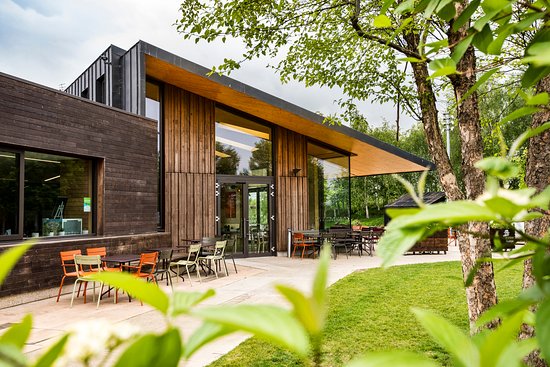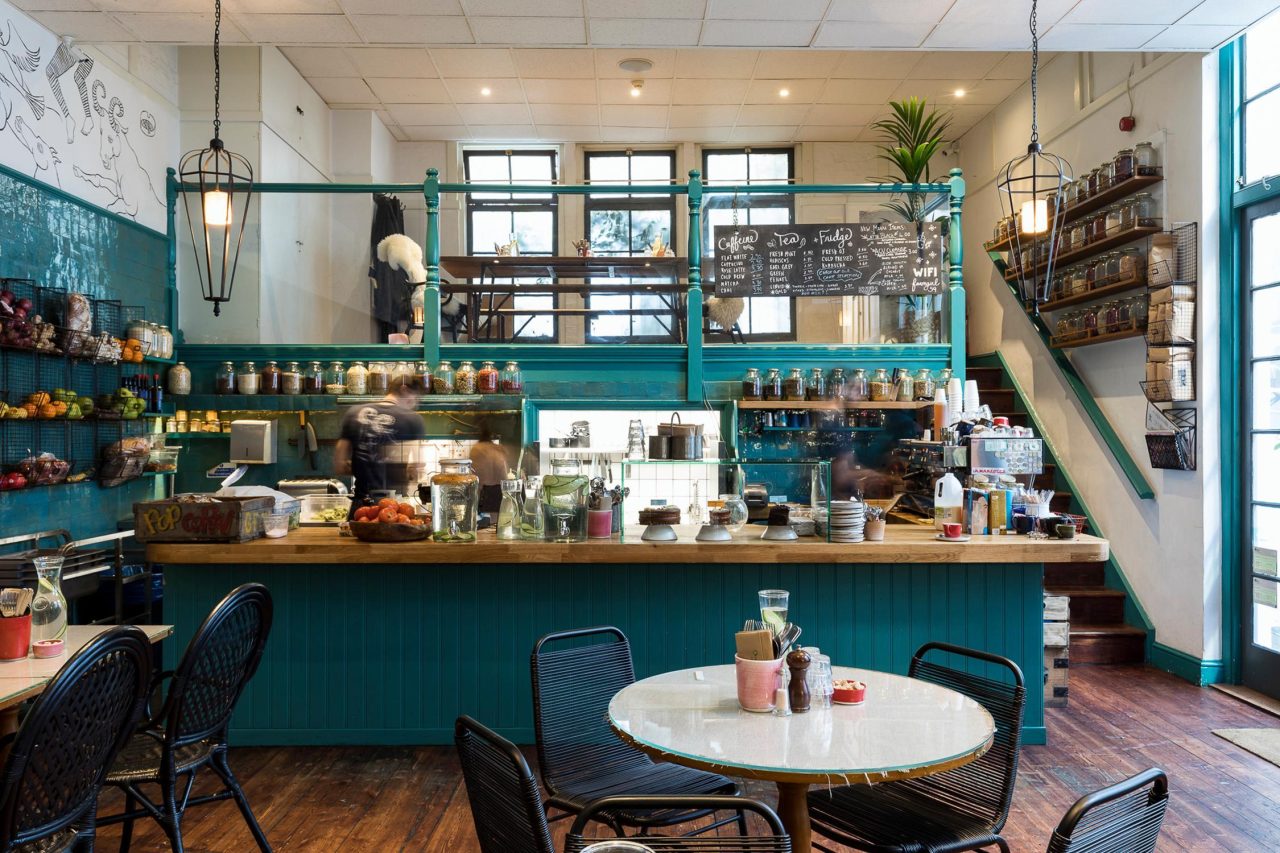We are in an era characterized by increasing environmental consciousness and a growing desire for ethical consumption. Sustainability is now a driving force that shapes industries, influences consumer preferences, and transforms business operations. And nowhere is this impact more apparent than in the realm of restaurants.
As consumers become more conscious of their choices and their effects on the planet, restaurants are presented with both challenges and opportunities to transform their operations and embrace sustainability. This article explores the power of sustainability in revolutionising restaurant operations and its far-reaching benefits.
What does sustainability mean in the context of restaurant operations?
Sustainability in restaurant operations encompasses a comprehensive approach to maintaining a delicate equilibrium between the restaurant’s activities and the broader environmental and social ecosystems it interacts with. This approach is designed to ensure the long-term viability of the restaurant while also contributing positively to the environment and the local community it serves.
By adopting sustainable operations, restaurants contribute to global environmental goals and position themselves as responsible and forward-thinking establishments catering to the preferences of environmentally conscious consumers.
Environmental benefits of sustainable practices
- Local sourcing
When restaurants opt for locally sourced ingredients, they embark on a journey far beyond taste. These establishments make a substantial dent in their carbon footprint by minimizing the need for ingredient transportation over long distances. This seemingly small decision creates a chain reaction reverberating through the local economy.

As restaurants establish relationships with nearby farmers and suppliers, they foster economic growth within their communities. Moreover, this practice directly combats the emissions responsible for climate change, aligning culinary choices with environmental preservation. By partnering with local producers, restaurants actively contribute to the protection of biodiversity and the vitality of ecosystems, positioning themselves as stewards of the environment.
- Mitigating food waste
Addressing the colossal issue of global food waste requires a multifaceted approach, and restaurants have a pivotal role to play. Restaurant Owners are unsung heroes in this endeavour by implementing sustainable practices that transcend the confines of the kitchen. Intelligent portion control not only reduces plate waste but also signifies a commitment to responsible consumption.

Through innovative menu engineering, restaurants can strategically repurpose ingredients, minimising waste without compromising taste. The transformation of food scraps into culinary delights showcases waste reduction creativity, simultaneously combating landfills’ detrimental impacts. In this process, restaurants elevate themselves to sustainability advocates, helping combat resource depletion and the release of greenhouse gases that exacerbate climate change.
- Water management
The restaurant industry emerges as a beacon of water-consciousness in a world grappling with the impending spectre of water scarcity. By meticulously fine-tuning their operations, from efficient dishwashing techniques to selective sourcing of water-efficient produce, restaurants exemplify water conservation. The ripple effect of these efforts extends beyond the confines of their kitchens, heightening patron awareness of responsible water practices. Observing such initiatives in practice serves as an educational platform, catalysing behavioural changes in customers as they embrace water stewardship in their daily lives.
- The plastics paradox
The pervasive scourge of single-use plastics has cast a shadow on our environment for far too long. Restaurants have the power to rewrite this disheartening narrative. By embracing biodegradable packaging, reusable containers, and eco-friendly cutlery, these establishments are transforming. Beyond just making a statement, their commitment signifies a promise to safeguard delicate ecosystems, protect marine life, and restore the balance of our natural world. This pivotal shift in perspective not only aligns with ecological responsibility but also kindles a wave of change that resonates with patrons and industry peers alike.

- Energy efficiency
Behind the bustling energy-intensive kitchens of restaurants lies untapped potential for resource conservation. Adopting energy-efficient appliances, well-thought-out lighting systems, and innovative heating and cooling solutions collectively pave the way for a more sustainable culinary landscape. Beyond the environmental benefits, this proactive stance also translates into lowered operational costs, creating a win-win scenario. By taking strides towards energy efficiency, restaurants demonstrate their commitment to minimising their ecological footprint and contributing to a future built on sustainable energy practices.
- Raising awareness
Restaurants are not merely places to savour meals; they are also platforms for storytelling and education. Beyond the gastronomic experience, they possess the power to illuminate the intricate journey that sustains the farm-to-table cycle. By sharing the narratives of local producers and the intricate processes that underpin sustainable practices, restaurants empower their patrons with knowledge. This awareness equips consumers to make informed choices that transcend their immediate dining experience, aligning their preferences with the principles of ecological responsibility and fostering a wider culture of sustainability.
Importance of social responsibility in restaurant operations
- Fostering ethical practices
Social responsibility underscores the commitment of a restaurant to ethical practices. This includes fair labour standards, transparency in sourcing ingredients, and treating employees and suppliers respectfully. By aligning with ethical guidelines, restaurants demonstrate their dedication to fostering a workplace culture that values integrity and equity.
- Enhancing reputation and loyalty
In an era where customers seek businesses that align with their values, socially responsible restaurants are often preferred. Patrons are likelier to frequent establishments prioritising sustainability, community engagement, and ethical conduct. Building a responsible and conscientious business reputation fosters customer loyalty and establishes a loyal patron base that believes in the restaurant’s mission.
- Contributing to local economies
Restaurants are integral components of local economies, and their social responsibility initiatives can significantly impact them. By sourcing ingredients locally, restaurants support nearby farmers and suppliers, injecting economic vitality into their communities. This practice bolsters local economies and reduces the carbon footprint associated with long-distance transportation.
- Addressing food insecurity
The restaurant industry possesses the unique ability to contribute to food security initiatives. By partnering with food banks, shelters, and outreach programs, socially responsible restaurants can redirect excess food to needy people. This act of compassion reduces food waste and nourishes underserved communities.
- Inspiring change
Restaurants are influential platforms for inspiring change. They set an example for customers and other businesses when they adopt environmentally friendly practices, such as minimising single-use plastics, energy-efficient operations, and responsible waste management. This ripple effect contributes to a broader shift toward sustainability and responsible consumption.
- Strengthening community bonds
Socially responsible restaurants foster a sense of community beyond culinary delights. They become integral parts of their neighbourhoods by engaging in community events, supporting local causes, and hosting charitable activities. This engagement not only strengthens local bonds but also enriches the lives of patrons and residents.
- Empowering employees
Employees in socially responsible restaurants often feel a sense of purpose and pride in their work. Knowing that their workplace upholds ethical standards and contributes to positive societal change can boost morale and job satisfaction. This empowerment resonates throughout the workforce, leading to a more engaged and motivated team.
Examples of restaurants engaging in community initiatives, supporting local farmers, and promoting social causes.
- Unity Kitchen Café – Empowering people with disabilities
Unity Kitchen Café, with multiple locations in the UK, is a social enterprise that empowers individuals with disabilities through employment opportunities. Their cafes provide vocational training and work experience, helping people gain valuable skills and build self-confidence. Unity Kitchen Café embodies community support and social causes by serving delicious meals and promoting social inclusion.

2. Farm Girl Café – Promoting healthy and ethical living
Farm Girl Café, based in London, strongly emphasises serving nutritious and ethically sourced food. They collaborate with local suppliers to showcase the best of British produce. With a menu designed to promote well-being and a sustainable lifestyle, this café stands as an advocate for supporting local farmers and encouraging healthy living.

3. The Clink Restaurant – Rehabilitation through culinary training
The Clink Restaurant operates across various UK prisons, providing inmates with vocational training in culinary arts. This initiative offers prisoners a chance to gain valuable skills that enhance their employability upon release. By supporting social rehabilitation and reducing reoffending rates, The Clink Restaurant contributes to both community well-being and social causes.
4. The Skip Garden Kitchen – Urban farm-to-table
Nestled in the heart of London, The Skip Garden Kitchen is a testament to urban sustainability. This unique restaurant is part of the Skip Garden, an urban garden that grows organic produce right on-site. The restaurant’s menu changes with the seasons, reflecting the garden’s bounty and promoting the importance of local and sustainable agriculture.

5. The Real Junk Food Project – Tackling food waste
The Real Junk Food Project operates in several locations in the UK, including Leeds, Manchester, and Birmingham. This initiative rescues surplus food that would otherwise go to waste and turns it into delicious meals served in pop-up cafes. By addressing food waste and providing affordable meals to the community, they align with both environmental and social causes.
Leveraging Grafterr
Grafterr is a cutting-edge platform that encapsulates the essence of comprehensive business management for the hospitality sector. Designed with the intricate needs of hotels, restaurants, cafes, and other establishments, Grafterr consolidates various functions onto a unified digital platform. This innovative approach revolutionises how these businesses operate, offering a holistic solution that enhances efficiency and elevates customer experiences.
What sets Grafterr apart is its ability to bring together a myriad of essential business aspects, enabling hospitality business owners and managers to effortlessly oversee operations from a single device. From inventory management and point-of-sale transactions to staff scheduling and customer relationship management, the platform seamlessly integrates these functions, eliminating the need for multiple disparate systems.
Conclusion
Sustainability is a powerful force that can transform restaurant operations and create a positive impact on the environment and society. By adopting sustainable practices, restaurants can reduce their carbon footprint, mitigate food waste, conserve water, and minimize their use of plastics. They can also contribute to local economies, address food insecurity, and inspire change.





